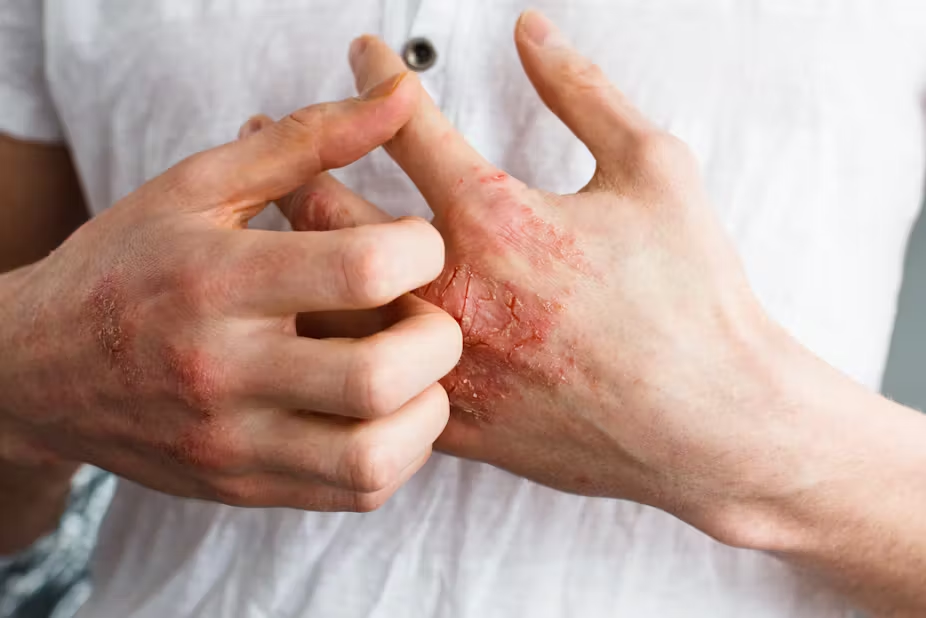Women’s Health Clinic in Bangalore - Why Women Are More Prone to Autoimmune Diseases
By Dr. Merlin Kishore
Autoimmune diseases are a group of conditions where the immune system, instead of protecting the body from infections, mistakenly attacks its own healthy tissues. These diseases affect nearly 80% of women, making it one of the most pressing yet under-discussed issues in women’s health. Conditions like lupus, rheumatoid arthritis, multiple sclerosis, and Hashimoto’s thyroiditis are all significantly more common in women than men.
But why are women more prone to autoimmune diseases? And more importantly, what can be done to reduce the risk or prevent the onset of these chronic conditions?
In this blog, we’ll explore the biological, hormonal, and environmental reasons behind this gender disparity and discuss preventive steps every woman should consider — especially with support from a reliable women’s health clinic that emphasizes early diagnosis and whole-body wellness.
The Biological and Hormonal Connection
1. Hormonal Influence
Hormones play a major role in immune system function — especially estrogen, which is known to enhance immune responses. While this can be beneficial in fighting infections, it may also increase the likelihood of an overactive immune system, leading to autoimmune disorders.
Fluctuations in hormone levels — during puberty, pregnancy, menstruation, or menopause — can trigger or worsen autoimmune symptoms. Women often notice flare-ups of autoimmune conditions during these periods, highlighting the link between Menstrual Care and autoimmunity.
2. Genetic Predisposition
Genetic differences also make women more susceptible. Certain autoimmune diseases are linked to the X chromosome, of which women have two. This genetic factor gives women a double dose of both protective and risk-related immune genes. Mutations or triggers can activate these risk genes, leading to disease development.
3. Immune System Strength
Paradoxically, women tend to have stronger immune responses than men — producing more antibodies and fighting off infections more effectively. However, this strong immunity may become hyperactive in some women, attacking healthy tissues in the process.
Lifestyle and Environmental Triggers
1. Diet and Gut Health
Poor gut health and high levels of inflammation are major contributors to autoimmune flare-ups. Diets high in sugar, gluten, processed foods, and trans fats can damage the gut lining, increase inflammation, and lead to an imbalance in gut bacteria — often referred to as leaky gut syndrome, a known precursor to many autoimmune conditions.
2. Stress and Emotional Health
Chronic stress plays a significant role in autoimmune disorders. When stress levels remain high for long periods, cortisol and other stress hormones dysregulate immune function. Women juggling menstrual irregularities, caregiving, careers, and societal expectations may find themselves more emotionally taxed — underscoring the importance of mental and menstrual care coordination at a comprehensive women's health clinic.
Dr. Merlin Kishore, a well-known women’s health specialist, emphasizes the deep connection between emotional wellness and immune resilience. At her clinic, women receive counseling and stress management support as part of their holistic treatment plan.
3. Environmental Toxins
Exposure to environmental toxins such as BPA, pesticides, heavy metals, and certain cosmetics can act as triggers for autoimmune responses. These toxins may mimic hormones or interfere with immune regulation, especially in women with hormonal imbalances.
The Link Between Menstrual Health and Autoimmune Risk
Menstrual Care is not just about managing monthly cycles — it is an important window into a woman’s overall health. Irregular periods, severe cramps, early menopause, or PCOS could signal deeper hormonal imbalances that might predispose someone to autoimmune conditions.
Some autoimmune diseases like lupus, Hashimoto’s, and rheumatoid arthritis have been shown to affect menstrual regularity, increase PMS symptoms, and lead to fertility issues. Therefore, routine check-ups at a women’s health clinic like the one led by Dr. Merlin Kishore are vital for early detection and prevention.
How to Prevent Autoimmune Diseases in Women
1. Prioritize Gut Health
- Eat a nutrient-rich, anti-inflammatory diet with fruits, vegetables, whole grains, and omega-3 fatty acids.
- Incorporate probiotics and fermented foods like yogurt, kefir, sauerkraut, and kombucha.
- Avoid processed food, artificial sweeteners, and excessive antibiotics.
- Dr. Merlin Kishore advises women to undergo nutritional counseling and gut health assessments regularly, particularly if they have a family history of autoimmune diseases.
2. Manage Stress Proactively
- Practice yoga, meditation, or deep breathing exercises regularly.
- Prioritize sleep and create boundaries between work and rest.
- Consider therapy or support groups if you experience chronic anxiety or emotional overwhelm.
3. Balance Hormones Naturally
- Visit a women’s health clinic that offers hormone testing and menstrual tracking.
- Address issues like thyroid disorders, PCOS, and estrogen dominance early.
- Use herbal supplements under medical supervision, such as ashwagandha, vitex, or evening primrose oil.
4. Exercise Wisely
- Regular moderate-intensity exercise helps reduce inflammation and balance immune responses.
- Avoid overtraining, which can increase cortisol and worsen autoimmune flare-ups.
5. Get Regular Check-ups
- Early signs of autoimmune diseases include fatigue, joint pain, hair loss, brain fog, and unexplained weight changes.
- Regular health screening at a women’s health clinic can help identify warning signs before they evolve into full-blown conditions.
- Dr. Merlin Kishore encourages every woman to take an annual wellness check-up seriously. She offers advanced autoimmune screening as part of her proactive care model.
The Role of a Women's Health Clinic in Autoimmune Care
Visiting a women’s health clinic that understands the interplay between reproductive health, immune function, and emotional wellness is crucial for both prevention and long-term care. These clinics provide:
- Hormonal assessments
- Menstrual cycle tracking
- Nutritional guidance
- Mental health support
- Autoimmune screening panels
- Integrative therapies like acupuncture or functional medicine
Under the guidance of Dr. Merlin Kishore, women receive evidence-based, compassionate care tailored to their unique physiology and lifestyle.
Final Thoughts
Autoimmune diseases are more than just a statistical reality for women — they’re a reflection of how immune, hormonal, and emotional systems are intricately connected in the female body. By understanding these links, taking preventive steps, and seeking the right support, women can reduce their risk and lead healthy, balanced lives.
Whether you're dealing with menstrual irregularities or seeking preventive care, consulting a trusted women’s health clinic is the first step in proactive wellness. Dr. Merlin Kishore offers comprehensive care that integrates Menstrual Care, autoimmune awareness, and hormonal balance — helping women take charge of their health with confidence and clarity.
Book your consultation with Dr. Merlin Kishore today and begin your journey to balanced, empowered wellness.





